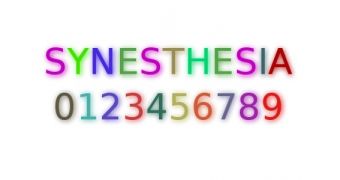For as long as I have covered news related to synesthesia, people have always commented that it is not a disease, illness or condition, but new research might very well prove them wrong. Scientists at the Cambridge University, led by professor Simon Baron-Cohen, determined recently that the incidence of synesthesia is much higher in autistic patients than in the general public.
This study is not meant to demonstrate a causal link between the two, but it does suggest that some underlying mechanisms may be connecting them, PsychCentral reports. Synesthesia is characterized by an integration of the five senses, where a stimulus affecting one affects all others as well.
For this investigation, researchers analyzed a total of 164 adult patients diagnosed with an autism spectrum disorder (ASD) and 97 healthy adults. Synesthesia was identified in 19 percent of people in the first group, and in 7 percent of people in the second. This means that synesthesia is nearly 300 percent more likely to occur in autistic individuals.
“I have studied both autism and synesthesia for over 25 years and I had assumed that one had nothing to do with the other. These findings will re-focus research to examine common factors that drive brain development in these traditionally very separate conditions,” Baron-Cohen explains.

 14 DAY TRIAL //
14 DAY TRIAL //